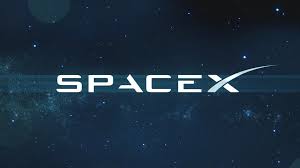Few individuals would take comfort in Wall Street spearheading an investigation into its own misuse of bailout funds or Congress self-investigating itself for political corruption. Why then do so many tech enthusiasts look the other way each time Elon Musk unapologetically takes part in similar grotesque conflicts-of-interest?
At the end of last month, a Tesla Model X self-driving car crashed, causing a fatality and prompting an investigation from the National Transportation Safety Board. Given how his company’s stock price recently plummeted due to its high debt, numerous vehicle recalls, and credit downgrade, Musk had clear reason to privately seek prompt closure of this report. But instead of letting this critical investigation run its course, the Tesla CEO irresponsibly acted on impulse and short-circuited the NTSB’s incomplete analysis.
Through a statement, Tesla alleged last week that the driver received several warnings before the crash and had enough time to put his hands on the wheel — essentially, putting blame on the deceased victim and little to none on itself. This move prompted the seldom-critical NTSB to remark they were “unhappy” that Tesla made such a detailed claim before the close of its investigation — a move that inappropriately influenced public opinion and put the company’s revenue concerns over the NTSB’s concerns for Americans’ security.
Have no fear, though — according to Musk, his self-interested public relations stunt was made entirely in the name of the public’s safety interests. The Tesla CEO justified his actions by playing down the importance of the NTSB and assuring the public that, “Tesla releases critical crash data affecting public safety immediately & always will.”
But what reason do Americans, particularly members of official Washington, have to trust the very company that the government is tasked with investigating? This question is especially relevant given how just weeks ago, officials found that SpaceX, Elon Musk’s rocket company, may have come up with deliberately inaccurate conclusions in what looked like a desperate attempt to shield itself from bearing any responsibility for security shortfalls.
In June 2015, a SpaceX’s Falcon 9 rocket exploded, destroying the entire $110 million cargo load after the company had been paid for all but 20 percent of the flight fee. Less than one month after this tragic accident, Musk began hitting the media circuit claiming that a supplier-provided strut, not personal imprecision, was the primary cause of this failure. Most in the media unflinchingly accepted this narrative with open arms. Oddly, though, the only voting member on SpaceX’s investigation team that was not employed by the company — a member of the Federal Aviation Administration — did not sign the accident investigation report.
For nearly three years, the lack of this important signature suggested that SpaceX may have been purposefully trying to mislead the public about the cause of its failure, but a recent public summary report released by NASA underscores just how probable this scenario is. Per the report released last month, SpaceX, not a supplier, is likely to blame for the explosion, as the company chose to use a lower-grade part and implemented it “without adequate screening … without regard to the manufacturer’s recommendations … and without proper modeling or adequate load testing of the part.”
SpaceX’s ostensible concealment of its operational problems may have played a role in the company’s subsequent failed missions, which include a September 2016 launchpad explosion that took down a $205 million satellite. Although we may never know if putting more timely sunlight on the 2015 explosion would have prevented or mitigated the subsequent slip-ups, it certainly wouldn’t have hurt. Accountability raises performance. And as Mahatma Gandhi once said, “It is wrong and immoral to seek to escape the consequences of one’s acts.” This seems to be one of Musk’s specialties.
One thing is for certain, though: we should never jeopardize our public safety by taking the word of one self-interested billionaire. Whether it’s rockets that America’s defense strategy hinges upon or self-driving cars that mean life or death for both the drivers and everyone else on the road, there is a lot at stake here. That’s why it’s so essential for the NTSB to speedily conclude its investigation into the Tesla fatality, as well as for NASA to follow-up its recent public report on the 2015 SpaceX failure with ones on the seceding accidents.
Last month’s release of the report was a step in the right direction, but never again should the American people have to wait nearly three years for answers to such critical national security concerns. Ensuring accountability and reliability is the primary job of the federal government’s independent agencies, and it’s time for them to begin showing it and governing as such before more damage is done.
